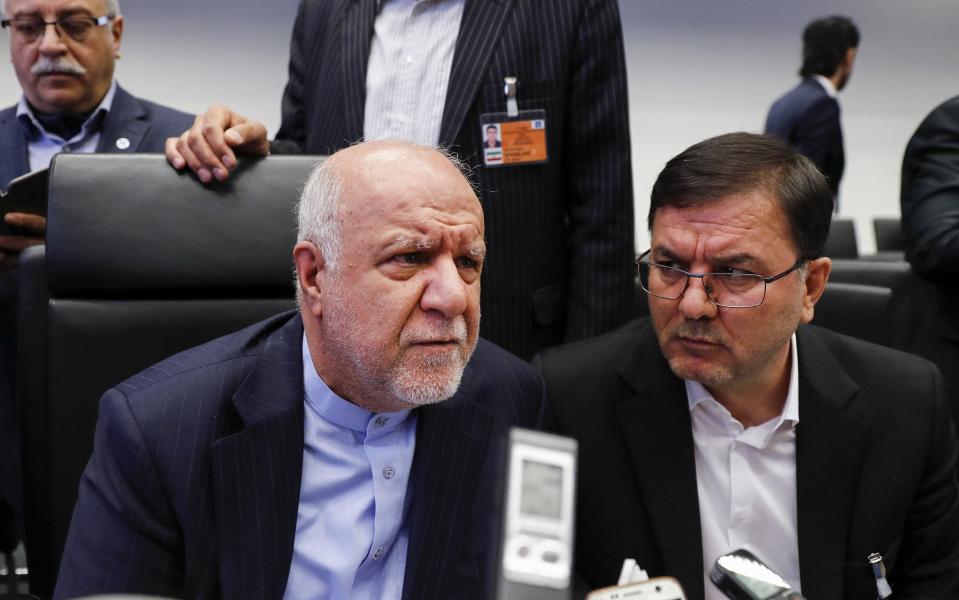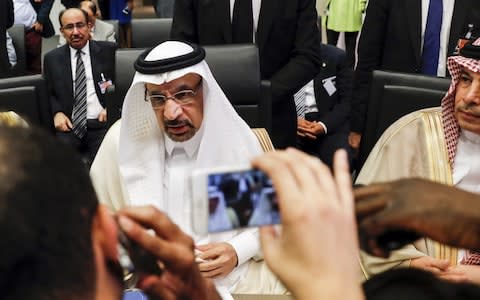Opec tackles thorny oil deal with tentative production lift

The Organisation of Petroleum Exporting Countries has agreed to lift the cartel’s oil production rate for the first time since the oil market crash by tentatively making way for a million barrels of oil a day to enter the market over the coming months.
Oil prices bounced almost $2 a barrel higher after ministers agreed to unwind the cartel's "over-compliance" with the landmark deal, struck in late 2016, rather than a 1.5 million barrel deluge touted by sources close the ministers ahead of the talks.
The deal carefully walks a line between opposing factions, confounding fears that schisms within the cartel would dash hopes of an agreement.
The ministers emerged from closed door meetings in Vienna with a compromise which allows those countries capable of ramping up their output room for a modest oil production lift, and plans for a gradual increase by the end of the year.
The nominal million barrel hike unwinds the "over-compliance" with Opec’s 2016 production cap pact which in May this year was 156pc. This means the actual number of extra barrels allowed to enter the market will be around 1 million barrels, but many believe the actual increases are likely to be lower due to geopolitical stumbling blocks facing many oil producing countries.
Opec has not set quotas on a country by country basis, but is confident that compliance will not be breached.

The tentative increase is less than many market participants feared, causing oil prices to bounce back towards $75 a barrel from less than $73 a barrel earlier this week, in a relatively benign outcome for countries wary of a price dampening flood of oil back into the market.
The eleventh hour agreement cements the importance of the cartel in balancing the oil market after weeks of fears that the conflicting political and economic agendas of Saudi Arabia and Iran would tear negotiations apart.
Iranian oil minister Bijan Zanganeh, who stormed out of talks late last night, joined Saudi energy minister Khalid Al Falih this morning to agree to lift the eighteen month cap on production later today.
The pair smoothed out their differences with a tentative short-term agreement which will take effect from July and remain in place until the group meets again in Algiers this September where another incremental increase may be agreed.
The group has been forced to take a softly-softly approach to oil production increases after cracks emerged within the cartel and threatened to dash the chances of a deal.
Mr Zanganeh abandoned the discussions late last night as Saudi Arabia and Russia refused to back down from calls for production hikes of around 1.5 million barrels of oil a day.
At a glance | OPEC
The pair are able to increase their production significantly and the countries are understood to be eager to defend their share of the global market against the return of US shale oil rigs.
But Iran, Iraq and Venezuela face major geopolitical challenges to their oil production and fear that a price increase will reduce the price they can ask for their barrels.
The production cap pact agreed in late 2016 has helped to lift oil prices from the depths of the downturn at $28 a barrel to more than $70 a barrel, but the price recovery has accelerated, which producers fear could cannibalise demand for crude oil by slowing economic activity if prices are allowed to climb to high.
The deal will also be put to producers outside of the cartel, led by Russia, in meetings to be held in Vienna tomorrow.
